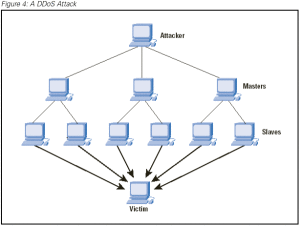 A man from Wisconsin was sentenced for participating in a DDoS (distributed denial-of-service) attack by hacker group Anonymous on a Kansas company.
A man from Wisconsin was sentenced for participating in a DDoS (distributed denial-of-service) attack by hacker group Anonymous on a Kansas company.
Eric J. Rosol, 38, is admitted that on Feb. 28, 2011, he took part in a denial of service attack for about a minute on a Web page of Koch Industries – Kochind.com, using software called a Low Orbit Ion Cannon Code, which was loaded on his computer.
LOIC is a popular DDoS tool used by Anonymous and other online attackers to overload websites with requests and disrupt the target server.
Rosol, who pleaded guilty to one misdemeanor count of accessing a protected computer, was sentenced to two years of federal probation and ordered to pay US$183,000 in restitution, the Department of Justice said in a statement.
A plea agreement was earlier entered by Rosol and the government in the U.S. District Court for the District of Kansas. The parties had agreed that the direct losses as a result of the attack on the website were less than $5,000 but Koch Industries had argued that it hired a consulting group to protect its Web sites at a cost of approximately $183,000.
Koch Industries’ owners, David and Charles Koch, were targeted by Anonymous for their alleged role in weakening the bargaining power of trade unions. The attack by Anonymous is said to have forced the Koch website offline for 15 minutes.
The company is privately held with headquarters in Wichita, Kansas, and has businesses in a number of areas including oil and manufacturing.
The use of U.S. computer laws to charge individuals for crimes that could lead to long sentences in jail has been criticised by some civil rights activists who argue that the punishment is often disproportionate to the online crime, and higher than sentences for similar crimes in the physical world.
Jeremy Hammond, 28, a member of Anonymous, was sentenced last month to 10 years in prison for hacking into the computers of a geopolitical analysis firm Strategic Forecasting, also called Stratfor, and obtaining subscriber and credit card information and emails, among other data. Hammond and supporters said he was a whistle blower, whose hacks aimed to expose government secrets, data gathering and surveillance.





